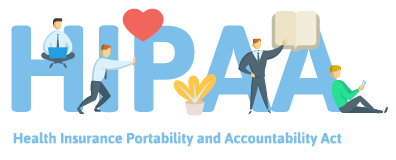 Protecting personal privacy is generally a good thing, but can also have unexpected results. Consider the plight of a 90-year-old lady (“Nancy”) who was the life of her weekly exercise classes. Nancy was very well known for youthful outlook and zest for life.
Protecting personal privacy is generally a good thing, but can also have unexpected results. Consider the plight of a 90-year-old lady (“Nancy”) who was the life of her weekly exercise classes. Nancy was very well known for youthful outlook and zest for life.
So when Nancy missed class one day, her friends tried to contact her. All they were able to learn was that she had been moved to a nursing home. No one would divulge which facility Nancy was in; her friends couldn’t visit. Nancy’s closest relative lives on the mainland, but none of Nancy’s friends knows how to contact that person. After a little detective work, one of Nancy’s closest friends (“Ms. Holmes”) discovered that a local bank was managing Nancy’s finances and that a court proceeding was pending to have a guardian appointed to look after her welfare. The attorney handling the guardianship proceeding and the bank trust officer handling Nancy’s affairs assured Ms. Holmes that Nancy is well and receiving the best of care. However, the lawyer and the trust officer both cited privacy concerns when declining to say anything further. The assurances were small comfort to Ms. Holmes, who still wonders how Nancy feels about her situation and whether she would appreciate visits from her friends.
According to Ms. Holmes, “Nancy has several friends who want to see her, but we just keep running into roadblocks when we try to find out where she is. No one is even willing to give Nancy a message. We don’t know how she feels about all this and nobody will tell us. To us, it is as if Nancy has been buried alive!”
Nancy’s friends have run up against federal and state laws that were intended to protect Nancy’s privacy, but which have isolated her and broken the hearts of her friends. The federal law is the Health Insurance Portability and Accountability Act (HIPAA) of 1996. Hawai‘i law provides similar protections for both medical and mental health records and information.
Under these relevant privacy laws, Nancy could have permitted her caregivers and medical providers to talk with one or more individuals by signing a HIPAA Authorization.
If Nancy’s story hits home, talk with your trusted advisors who can help you develop your HIPAA Authorization and avoid the feeling of being buried alive if your health falters.
SCOTT MAKUAKANE, Counselor at Law
Focusing exclusively on estate planning and trust law.
www.est8planning.com
808-587-8227 | maku@est8planning.com


Leave a Reply